The Provocative Punk Song That Evolved Into ‘Ça Plane Pour Moi’
In the mid-1970s, Alan Ward was the singer for the British proto-punk band, Bastard. The group included guitarist Brian James, later a founding member of the Damned. In addition to being the frontman and lyricist for Bastard, Ward was also working as a recording engineer, and when he was offered the position of chief engineer at Morgan Studios in Brussels, the entire band packed up and moved to Belgium. Eventually, the group went their separate ways, with Ward staying on at Morgan. But he wasn’t through with being a performer.
Ward and colleague Mike Butcher were asked by a Belgian producer named Lou Deprijck to record a couple of punk songs for him. The tracks were written by Deprijck and his associate, Yvan Lacomblez, with Ward providing the lyrics. Ward also sang lead on the recordings, and Butcher played guitar. The result was the 1977 single, “Jet Boy Jet Girl,” a driving number with spry horns, backed with the appropriately bouncy “Pogo Pogo.” Both tunes come across as parodies of punk, though they are still undeniably catchy.
The record is credited to Elton Motello, which was both Ward’s new alias and the name of the band. The group also included Butcher, who was calling himself Jet Staxx.
“Jet Boy Jet Girl” is about a fifteen-year-old boy who’s been in a sexual relationship with another male, possibly an adult. Ward sings from the point of the view of the teen, whose jealousy has inspired a violent fantasy. The first verse:
Can you tell what’s on my mind
She’s with him it drives me wild
I’d like to hit him on the head until he’s dead
The sight of blood is such a high
He gives me head
Quite an opening, ‘eh? Well, the song is chock-full of intriguing lyrics, including this chorus couplet: “Jet boy, I’m gonna make ‘em penetrate/I’m gonna make you be a girl.” In another verse, the boy’s violent thoughts have turned to sadness, sparking this fabulous line: “I could have cried with both my eyes.” It’s at this point that the “he gives me head” refrain is changed to “he gave me head,” indicating the relationship has ended. The final verse:
And if or when I make it through
Or if my brain is stuck on glue
And when the world tries to forget all that I said
I’ll still remember you
You gave me head
In a Sounds magazine profile from the period that noted it took a lot of courage in 1978 to sing a song like “Jet Boy Jet Girl,” Ward said: “I just wanted to show that even though a person was gay it did not mean that he or she was free from everyday problems which affect every other person.”
At some point, Lou Deprijck decided he wanted to record a French version of “Jet Boy Jet Girl,” so he recycled the Elton Motello backing track and added new vocals. The words were completely rewritten by Yvan Lacomblez, and the melodies were altered somewhat. The vocal style was also changed, the urgency and attitude of Ward’s approach replaced in favor of a deadpan, rapid-fire delivery. There are also surprising nods to vocal groups like the Beach Boys and the Four Seasons. Lacomblez’s mostly French lyrics (some are in English) are said to be nonsensical, just a stream of unrelated phrases and puns. The song was retitled “Ça Plane Pour Moi” (rough translation: “This Life’s for Me”) and released under the name Plastic Bertrand.
Roger Jouret, drummer for the Belgian punk band Hubble Bubble, was recruited to front Plastic Bertrand. Jouret had drummed for Elton Motello for a spell (he’s on the far left in the “Jet Boy Jet Girl” picture sleeve photo at the top of this article). In 1978, “Ça Plane Pour Moi” was released and became a hit across the globe, reportedly selling north of a million copies. Ward was left off the songwriting credits, depriving him of royalties—or so it seemed (more on that below).
Remarkably, considering the subject matter, “Jet Boy Jet Girl” did get some spins on U.K. radio. In non-English speaking countries, the lyrics were no matter, and the band appeared on at least a couple of European television programs miming “Jet Boy Jet Girl”; luckily, two clips circulate online. In both, a heavily made-up Ward is wearing a torn t-shirt with “FUCK YOU” scrawled across the front. Every time the “he gives/gave me head” line comes around he smacks himself in the noggin, with the talcum powder he’s put in his hair spattering about to fine effect. He’s also using what appears to be a can of deodorant as a microphone. In the TV appearance embedded below, Ward is dancing in a herky-jerky fashion (imagine Frankenstein’s monster after taking amphetamines) and, at one-point, Plastic Bertrand bops into the frame and dances for a spell. It’s all priceless punk fun.
“Jet Boy Jet Girl” has been covered several times. The most high-profile version is attributed to Captain Sensible of the Damned, whose rendition was released as a single in 1978. Subsequently, the song was played live by the Damned, with Sensible’s cover included on the group’s 1981 best-of compilation.
Following Elton Motello’s “Jet Boy Jet Girl” 45, the band put out two full-length albums, Victim of Time (1978) and Pop Art (1980), before calling it a day. Since 1995, Ward has been behind the board at his Brussels studio, Electric City Mastering.
In a 2013 piece on “Ça Plane Pour Moi” for the Scottish Daily Mail, Ward commented on not receiving credit for his part in writing the song, and the lasting impact of “Jet Boy Jet Girl”:
“We’ve all been ripped off at some point in our lives, but judging by the emails I receive, my lyric has touched many more people and seems to ring a chord in many more hearts than the French one will ever do.”
Though Ward’s name is nowhere to be found on the Plastic Bertrand records with “Ça Plane Pour Moi,” it appears he has been compensated. A recent search of the database for ASCAP, one of two major organizations responsible for distributing royalties to its members, revealed that along with Deprijck and Lacomblez, Ward is listed as one of the songwriters. So why the discrepancy? Unfortunately, Ward didn’t respond to an interview request seeking clarification on this matter.
There’s been much controversy regarding who actually sang the lead vocal on “Ça Plane Pour Moi,” along with every track on the first four Plastic Bertrand albums. At times, as far back as the 1990s, Roger Jouret has admitted he didn’t sing “Ça Plane Pour Moi,” but always recants. Producer/songwriter Lou Deprijck maintained he was the singer. In 2006, a Belgian court determined Jouret to be the “legal performer” of “Ça Plane Pour Moi,” but in 2010, followed up that ruling with the declaration that Deprijck was the singer on record.
Deprijck died in 2023. Jouret is still active as Plastic Bertrand.
I’ll leave you with Plastic Bertrand’s wonderfully absurd 1977 appearance on the Australian TV program, TopPop, miming “Ça Plane Pour Moi.”

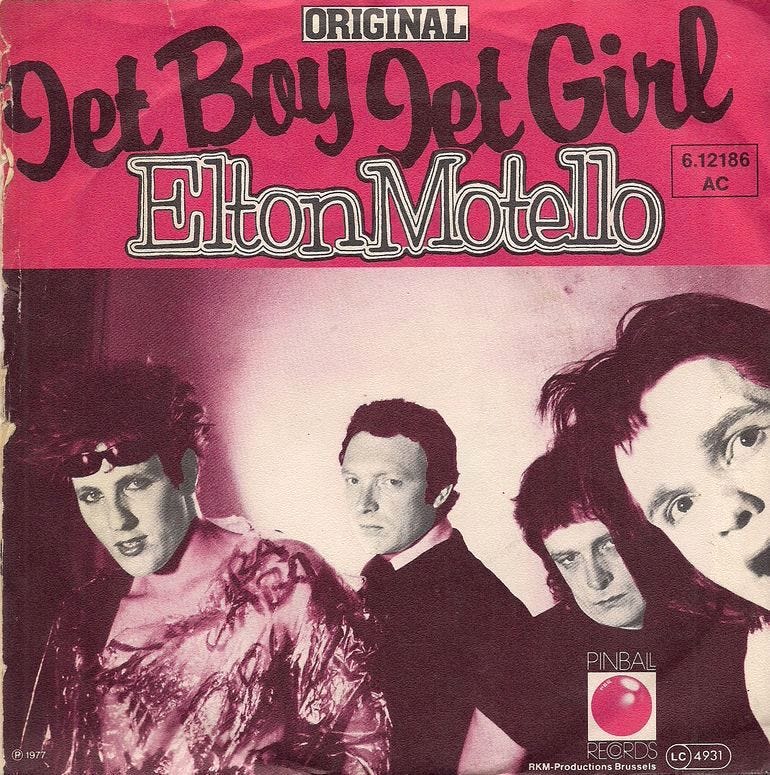
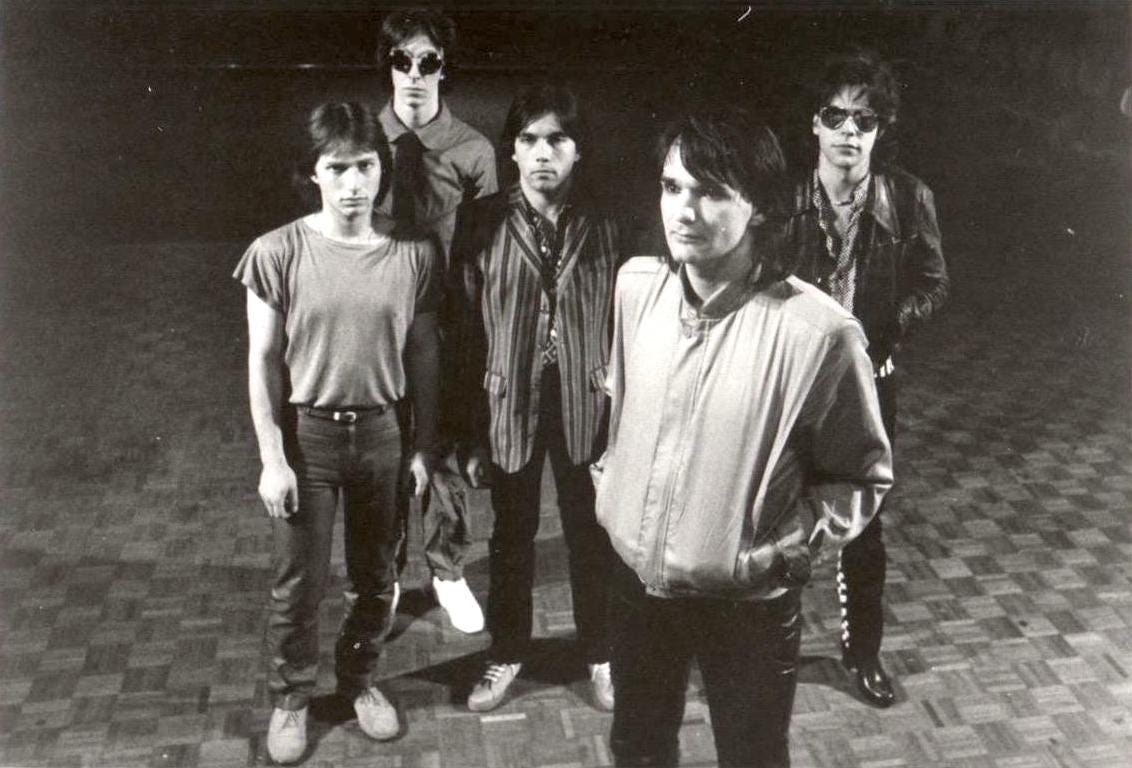
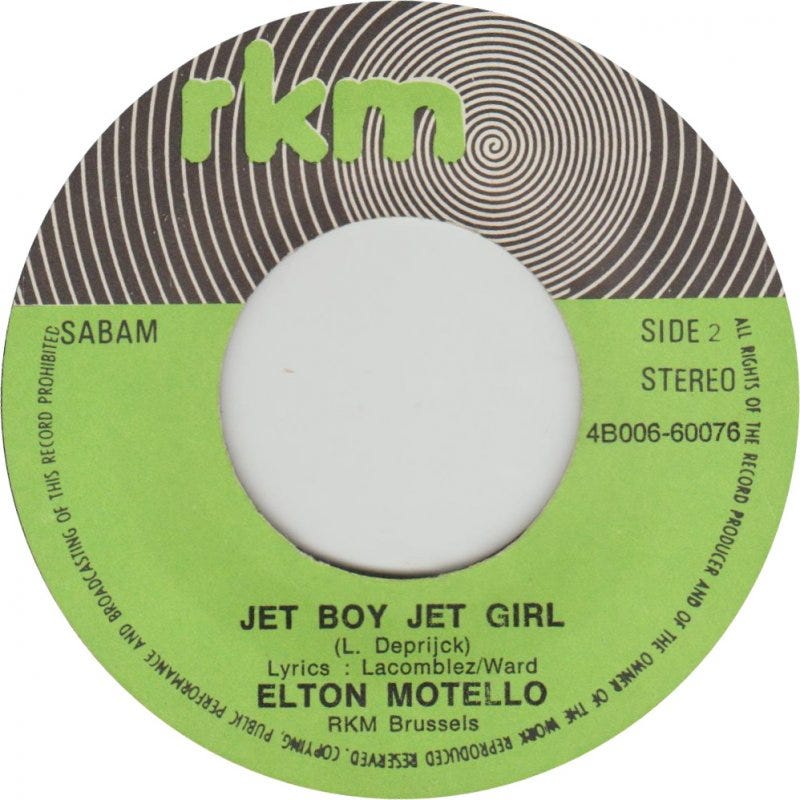
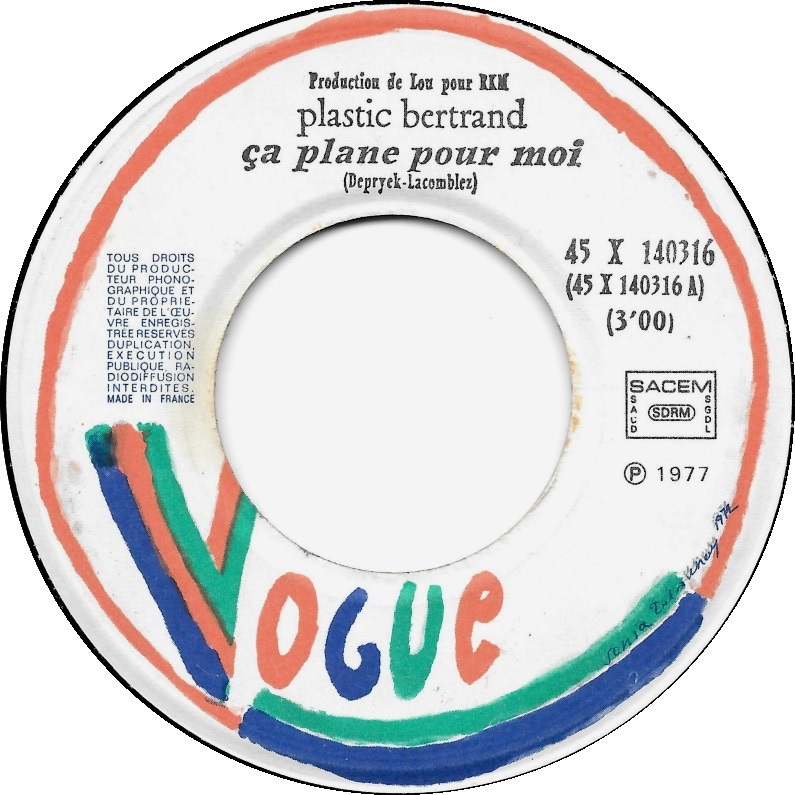
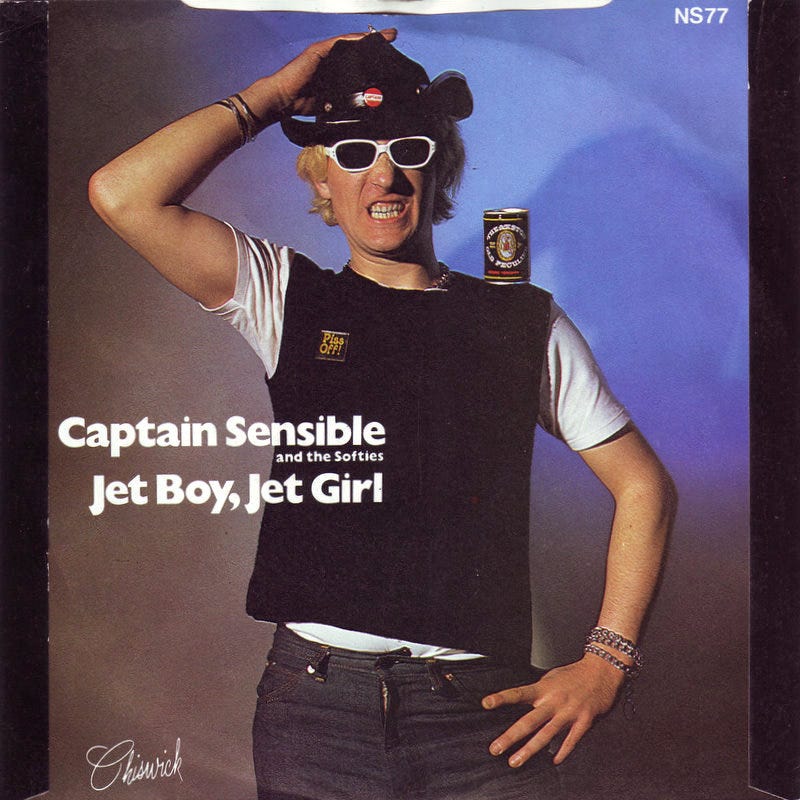
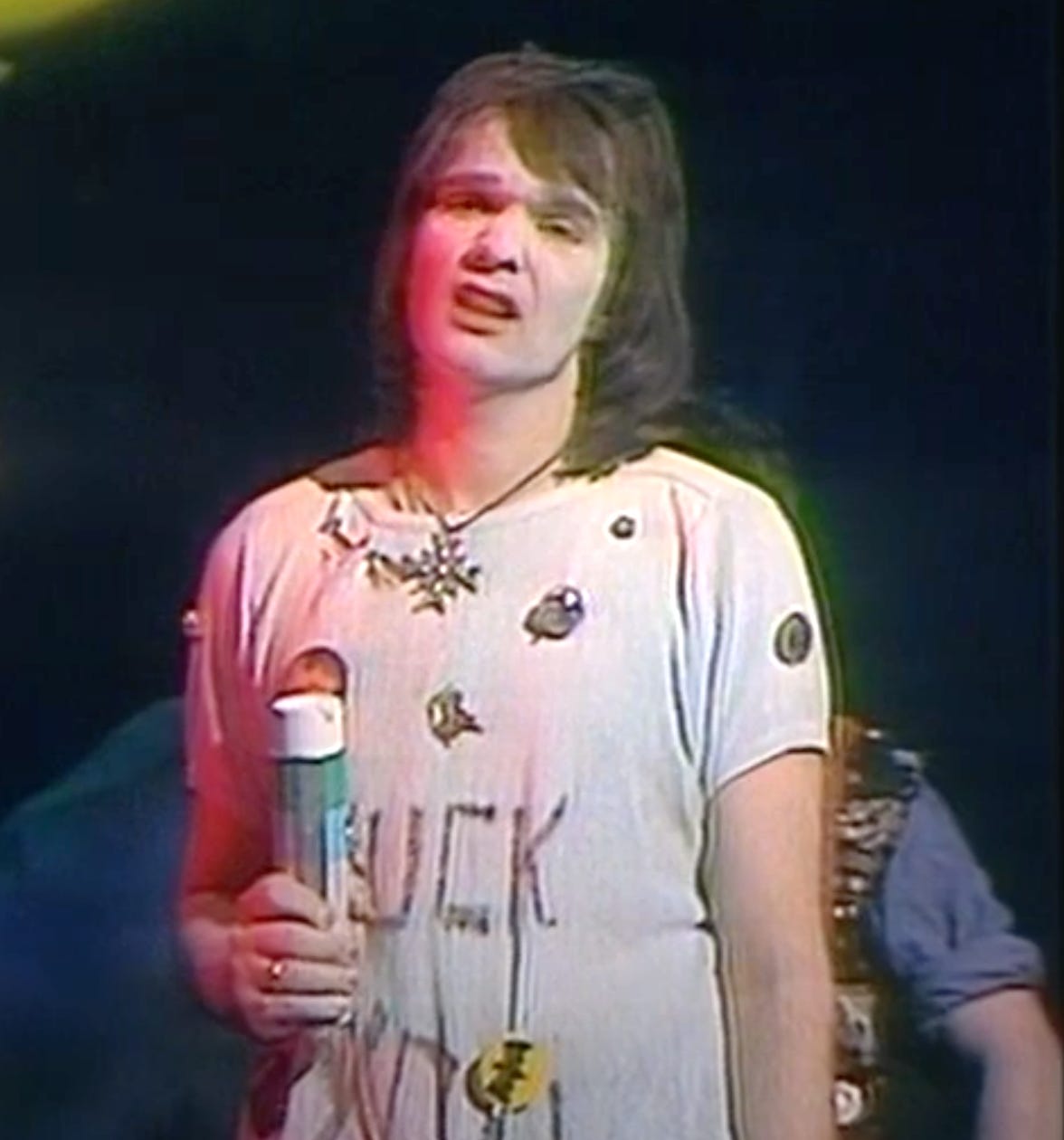
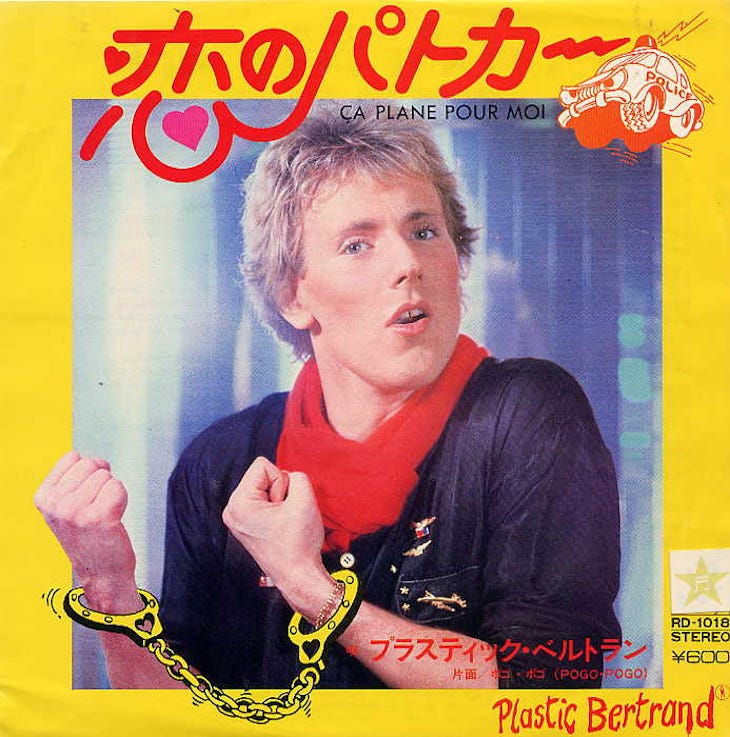
Crazy story!